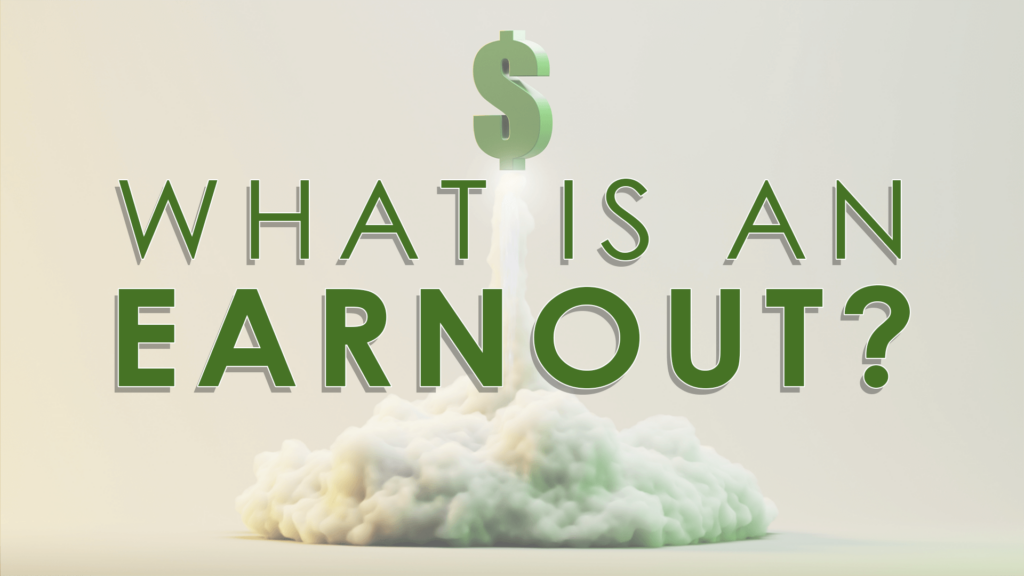
In a private equity transaction or M&A deal, an earnout is a contractual provision stating that the seller of the business is entitled to additional future compensation based on the performance of the business post-acquisition. Earnouts can help move a process forward in instances where the buyer’s and seller’s opinion of the company’s valuation differ.
For the buyer, an earnout reduces the amount of the cash purchase price on the date of the transaction, which can reduce the risk profile of the transaction. For the seller, an earnout provides the potential to achieve a higher purchase price assuming certain milestones are met.
Think of it as a structure that allows the seller to share in additional upside if certain targets are met, while still allowing the buyer to protect themselves on the downside if the company fails to meet those same targets. The unknown elements in any transaction present risk to a buyer, an earnout is one of the many tools a buyer can employ to offset a portion of that risk.
At its most basic, an earnout is functionally an if-then statement: if certain mutually agreed-upon milestones are met at some point in the future, then the seller will receive [X] amount of additional compensation.
Why are Earnouts Useful in Negotiations?
To echo the introduction, earnouts help bridge a perceived valuation gap between the buyer and the seller. In this section, we will explore common sources of this valuation gap.
Differing Growth Expectations: One of the most common and in some ways most understandable drivers of a large gap in valuation expectations is differing views on growth. A management team may have years of experience, deep analysis, and informed advisors telling them that industry growth will be much higher than the buyer thinks it will be, that a cycle will be much less severe, or that certain initiatives will have a much greater impact on the business – and they may be right! Thus, they might justifiably feel like the inputs used by the buyer to arrive at the company’s valuation are incorrect.
Founder’s Optimism or Attachment: Founders of a business can be overly aggressive in their price expectations. And why not? They have seen the business grow, in many cases against the odds and doubts of others, so they may be biased to the upside in their view of the company’s future potential. Furthermore, founders may have a deep attachment to the business and their involvement with it, which may cause them to set a “walk-away price” that is either consciously or unconsciously well above what a buyer might consider “market.”
Unrealistic Comp Sets: The seller may have a set of public (or private) “comps” or comparable businesses in mind against which they are benchmarking their value expectations. Frequently, these comp sets are provided to them by bankers or other advisors who are in the business of inflating values to curry favor with the seller. The issue is that especially when public comps are involved, there may be premiums for scale or liquidity factored into those valuations that do not apply in a smaller, private setting. The comp set may also involve a particularly “sexy” subset of the industry in which a target operates that command higher valuations than what is relevant for the business at hand.
Stuck on a Number: More often than you would expect, the seller will have a single number in mind that they are determined to achieve in a sale. Sometimes, this number is driven by offers they’ve gotten for the business in the past (which may or may not have had any actual substance to them), but other times it is really just a number, with little if any math or modeling to support it. Regardless, it can be very tough to get people off their “number” once it’s been stuck in their head for years.
Greed: Sometimes, sellers and their advisors are simply greedy, and will demand an unreasonable sum just because they think they can (or because they are lifelong fans of Gordon Gekko).
All of the above represent core obstacles a buyer frequently faces when navigating the process with a seller, particularly if the seller is inexperienced in the M&A space as many family-owned/founder-owned companies tend to be. A skeptical buyer, one with less cash to deploy, or one simply seeking to structure a deal to maximize their future returns while maintaining a comfortable risk profile can build in an earnout to close gaps in the valuation spread and achieve their goals. Sellers who are confident in the future outlook of their company can seek an earnout as a substitute or complement to an equity rollover to allow themselves a second bite of the proverbial “apple”. An earnout is a tool beneficial to both parties when used appropriately.
Related Posts:
Note: ASM is developing a new series focused on earnouts as part of our Content Creation Initiative with Katten. Over the next few weeks we will develop a course that explains how earnouts are structured and modeled.
